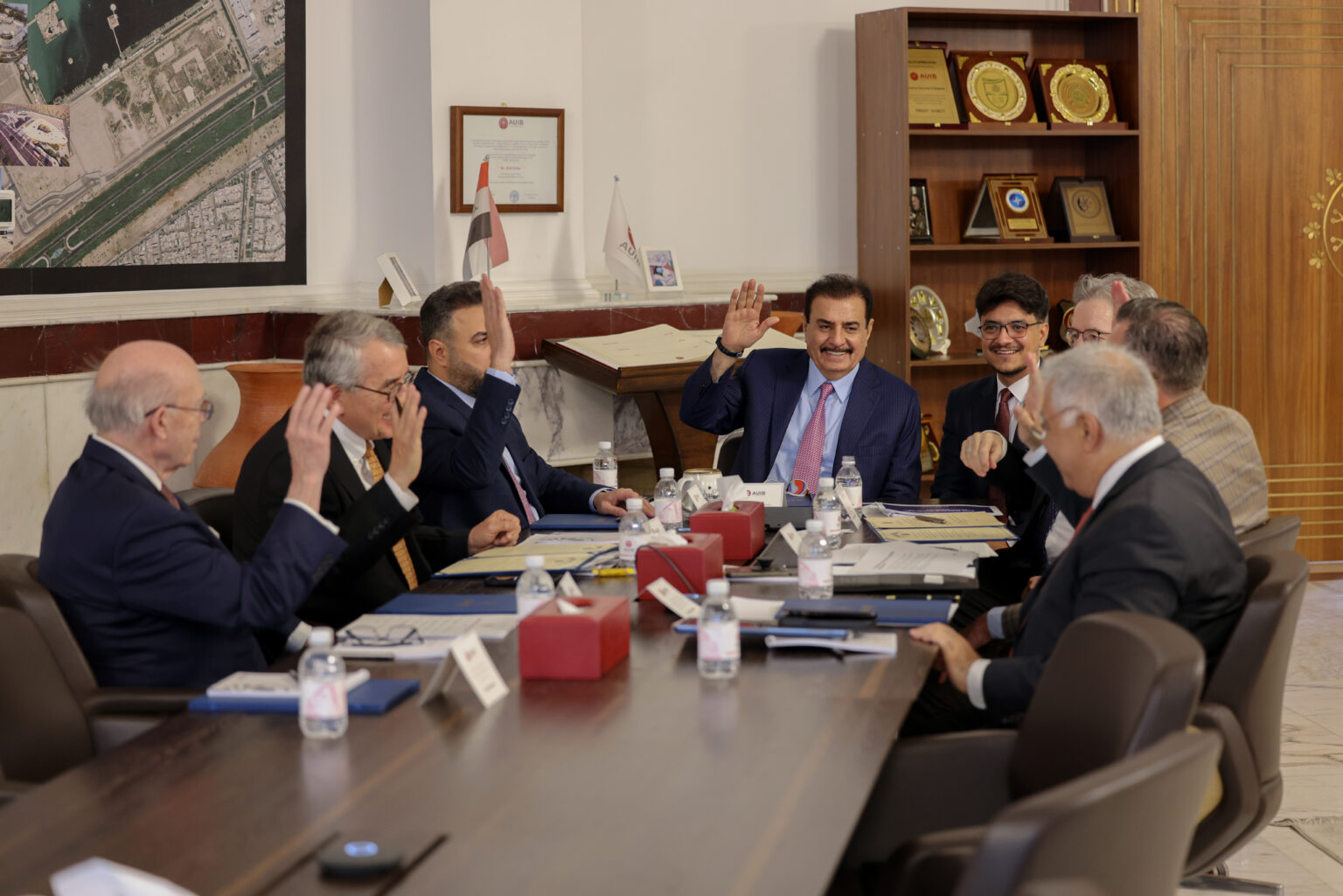The American University of Iraq – Baghdad has recently initiated the formation of a Board of Trustees to oversee its operations in alignment with the principles of American and international higher education, and in compliance with the applicable laws of the Republic of Iraq. The forthcoming Board is expected to include new members with extensive experience in government, academia, and private sector consultancy. Leadership roles will be strategically allocated to infuse the university’s senior management with fresh perspectives, thereby enriching its institutional knowledge, broadening its expertise, and introducing innovative viewpoints.
One of the most notable proposals for the formation of the new Board of Trustees at the American University of Iraq – Baghdad involves changes in the university’s leadership. Dr. Michael Mulnix, a distinguished academic and seasoned leader in higher education, had previously served as university president. During his tenure, he effectively managed the institution in accordance with Iraqi laws, fulfilling roles that were functionally equivalent to those of a traditional Board of Trustees recognized internationally.
Recently, however, Dr. Bradley Cook has been nominated to succeed Dr. Mulnix as the new university president. In addition, the university plans to appoint Mr. Olin Wethington to the newly formed Board of Trustees. Mr. Wethington played a pivotal role in shaping Iraq’s economic policy following the 2003 war. He has held several senior positions in the U.S. government, including Special Envoy to China, Assistant Secretary of the Treasury for International Affairs, Special Assistant to the President, and Executive Secretary of the White House Economic Policy Council during President George H. W. Bush’s administration.
Mr. Wethington is also the founder and Chairman of Wethington International, a consulting firm specializing in investment and business strategy. Moreover, he serves as Executive Director of the “Project on Revitalizing the Future of the Asia-Pacific” at the Scowcroft Center for Strategy and Security within the Atlantic Council.
For any university operating under the American model of higher education and aspiring to earn accreditation, it is essential to have an independent Board of Trustees empowered to make decisions that serve the best interests of students, faculty, and administrative staff. While the current laws in Iraq neither explicitly allow nor prohibit the formation of such a board or define its authorities in the governance of registered universities, the American University of Iraq – Baghdad strongly believes that establishing a Board of Trustees in accordance with American academic standards is a significant and necessary step forward.
Commenting on this development, Dr. Michael Mulnix stated, “The American University of Iraq – Baghdad is working toward forming a Board of Trustees composed of individuals who bring diverse perspectives from around the world and represent a range of nationalities.” The veteran academic emphasized the university’s need for “external advice and guidance from global experts on emerging trends and the evolving knowledge that students must be exposed to… What’s new? What are the latest technologies across sectors? This is why the university needs an external Board of Trustees.”
“The American University of Iraq – Baghdad was established to offer the Iraqi public—particularly its youth—access to high-quality, world-class education. As members of the university’s leadership, we carry what we refer to as a fiduciary responsibility to preserve, sustain, and expand this vision, while upholding the founding values upon which the university was built,” remarked Mr. Olin Wethington,
adding: “Iraq is a country rich in natural resources, and I count among them the talents of its people. We all recognize that Iraq is the cradle of civilization. Therefore, it not only offers the world a profound historical legacy, but also possesses the will to continue contributing—not just locally, but globally—to a culture of peace, stability, and openness to others.”
